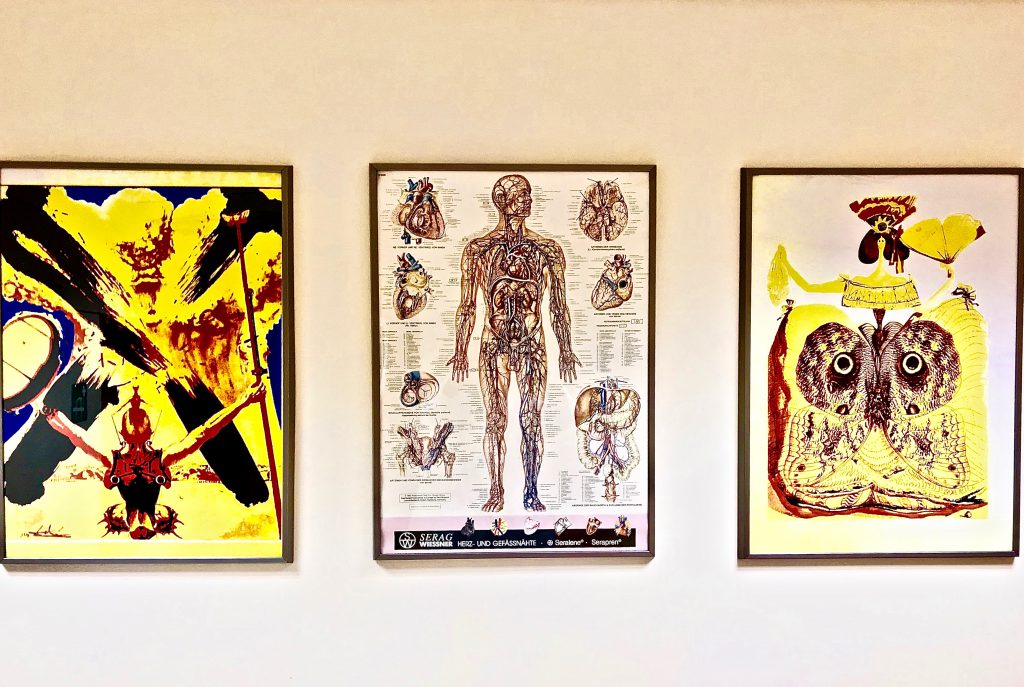Saphenion®: Outpatient Endovascular Interventional Society – Background
Saphenion®: Outpatient Endovascular Interventional Society – We were asked for a Review of an article describing this great theme of modern vascular therapy.
We are feeling honored – here is our answer:
THE PAPER:
Saphenion®: Outpatient Endovascular Interventional Society National Registry for Office-Based Procedures: Design and Methodology
Samuel S. Ahn MD1Robert W. Tahara, MD2, Lauren E. Jones, MS3Jeffrey G. Carr MD, John Blebea MD, MBA5, DFW Vascular Group, Dallas, TX2,
Allegheny Vein and Vascular, Bradford, PA, 3Outpatient Endovascular and Interventional Society, Hoffman Estates, IL, 4Tyler Cardiac and Endovascular Center, Tyler, TX5, Central Michigan University College of Medicine, Saginaw, MI

Saphenion®: Outpatient Endovascular Interventional Society has emerged as a preferred treatment option for patients with vascular disease in recent years. Procedures performed in this relatively new site of service are without historical data to assess clinical best practices. Quality data collection with subsequent outcomes analysis, benchmarking, and direct feedback, is necessary to achieve optimal care. Outcomes-based registries can serve this purpose.
Saphenion®: Outpatient Endovascular Interventional Society – INTRODUCTION
Outpatient endovascular interventions have grown rapidly into an increasingly prevalent treatment option for vascular disease.1-4 Advances in pharmacology and technology for endovascular care and the changes in reimbursement by the Centers for Medicare and Medicaid Services (CMS) to shift the cost of care to outpatient sites of service have also led to the growth in outpatient endovascular procedures. Although outpatient and office-based interventional suites have been operational for many years, there has been a marked proliferation of these sites nationwide during the past decade. It is estimated, based on informal industry surveys and Medicare claims data, that nearly 750 office-based labs currently exist in the United States and that number continues to grow. Office-based labs, also referred to as office-based endovascular suites or outpatient interventional suites, offer distinct advantages for patient care being more efficient and cost-effective than hospital-based interventions. In addition, patient satisfaction is consistently very high in these centers.
This increased utilization of outpatient and office-based sites of service has raised questions about potential overutilization, adverse patient outcomes, and the overall quality of care provided in this environment. Though published reports from individual centers have shown excellent clinical results with very low morbidity and mortality, there is little state-wide or national data available for analysis and comparison. Similarly, there are no established guidelines or metrics to assess best clinical practices. Broad-based patient and procedural data collection with associated outcome analysis, benchmarking, and clinician feedback are necessary to achieve optimal care. Outcomes-based registries can serve this purpose.
Over the past two decades, physician and professional societies’ voluntary clinical registries such as the Society of Thoracic Surgeons (STS) National Database, American College of Surgeons National Surgical Quality Improvement Program (NSQIP), Society for Vascular Surgery Vascular Quality Initiative (VQI), and the American College of Cardiology National Cardiovascular Data Registry (NCDR) have demonstrated the value of such initiatives in changing physician behavior and improving patient outcomes. These established registries have focused primarily on inpatient outcomes (NSQIP), specialty-specific procedures (STS), or a combination of both (VQI and NCDR).
However, none have been directed at a multi-specialty set of procedures performed by vascular surgeons, interventional cardiologists, and interventional radiologists in an office outpatient environment and, thus, they do not meet the unique needs of outpatient endovascular providers. Existing quality outcome measures tend to be geared toward medical and inpatient hospital interventions rather than outpatient procedures.33 Measured surgical outcomes focus primarily on open procedures rather than minimally invasive interventions. In addition, NSQIP requires follow-up data collected at 30 days.20 Therefore, this does not allow for long-term outcome research or analysis to determine the best treatment. Although the VQI requires follow-up at 1 year and allows further follow-up at data to be entered for up to 5 years, this national registry is costly and requires a full-time on-site data entry manager.25 Participation in existing registries often requires hospital financial support and is cost-prohibitive to most private practice or office-based endovascular centers. Thus, there is a need to develop a patient-centered, physician-friendly, and cost-effective registry specifically for outpatient endovascular procedures.

Saphenion®: Outpatient Endovascular International Society – CONCLUSIONS
SaphenionScience: The Outpatient EndovascularInterventional Society National Registry is now the standard for quality and outcomes analysis related to outpatient endovascular interventions. Registry data can provide new insights into the safety and efficacy of outpatient endovascular interventions. Opportunities abound for investigators to utilize Registry resources to develop quality standards for best practice in an outpatient setting and provide operator and site-level feedback to drive quality improvement and positive patient outcomes.

Saphenion®: Outpatient Endovascular Interventional Society – OUR OPINION
Vascular surgery has been changing for over 30 years. We see more and more minimal invasive endovascular techniques in all regions, for nearly all vessels, arteries, or veins.
In relation to this change of therapy techniques – more and more endovascular – more therapeutic interventions take part as outpatient therapies.
So it is perfect to have a scientific society for collecting data for safety, efficacy, and quality of care for outpatient endovascular interventions.
There have to be including all kinds of therapies, not only for peripheral arterial diseases, but also for intra cerebral and aortic diseases, and very importantly – a large number of outpatient endo-venous interventions. Worldwide we have over 70% of all endo-venous therapies as outpatient interventions!
One exception is Germany – there we have since a lot of decades much more hospital interventions. Over 70% of all vascular interventions take place in hospitals, not outpatients!
The authors are right to formulate a modern internet and web-based system of data registration for all kinds of endovascular treatment.
The authors should expand and open The OEIS National Registry to a worldwide working The OEIS International Registry via the web.
This is important for all patients and colleagues worldwide!
I agree with this paper and we recommend it for publication.
Dr. Ulf Th.Zierau, MD, Saphenion® Vascular Center Rostock.

Photos: Utzius
Papers/Links:
Ahn SS, Tahara RW, Jones LE, Carr JG, Blebea J. Preliminary Results of the Outpatient Endovascular and Interventional Society National Registry. J Endovasc Ther. 2020 Dec;27(6):956-963. doi: 10.1177/1526602820949970. Epub 2020 Aug 19. PMID: 32813592; PMCID: PMC8685594.
Bacharach T, Panneton JM. Commentary: The OEIS National Registry Has the Potential to Change Office-Based Endovascular Practice: Is That a Cause for Celebration or Trepidation? J Endovasc Ther. 2020 Dec;27(6):964-966. doi: 10.1177/1526602820952054. Epub 2020 Aug 28. PMID: 32856517.
Blebea J, Jain K, Cheng CI, Pittman C, Daugherty S. Expected changes in physician outpatient interventional practices as a result of coronavirus disease 2019 and recent changes in Medicare physician fee schedule. J Vasc Surg Venous Lymphat Disord. 2023 Jan;11(1):1-9.e4. doi: 10.1016/j.jvsv.2022.08.006. Epub 2022 Sep 28. PMID: 36179786; PMCID: PMC9514954.
Morrison N, Gibson K, Vasquez M, Weiss R, Jones A. Five-year extension study of patients from a randomized clinical trial (VeClose) comparing cyanoacrylate closure versus radiofrequency ablation for the treatment of incompetent great saphenous veins. J Vasc Surg Venous Lymphat Disord. 2020 Nov;8(6):978-989. doi: 10.1016/j.jvsv.2019.12.080. Epub 2020 Mar 20. PMID: 32205125.
